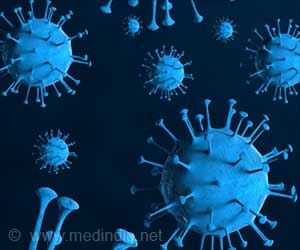Since a minimum level of antibodies needed for protection hasn’t been established, it has been difficult to say whether the levels achieved by people on immune suppressing drugs are high enough to protect them from severe COVID-19, the researchers said.
The Centers for Disease Control and Prevention (CDC) recommended a third dose of the vaccine to strengthen their immune responses.
The results are encouraging news for a population that faces a high risk of serious illness.
“Some of our patients have been hesitant about getting vaccinated, which is unfortunate because they are at increased risk of having more severe cases of COVID-19 if they happen to get infected, compared to those not taking immune suppressing drugs,” said co-senior author Alfred Kim, MD, PhD, an assistant professor of medicine who treats patients with autoimmune conditions at Barnes-Jewish Hospital.
“Some of them are worried that vaccination might cause their disease to flare, but we haven’t seen that happen. Others don’t see the point of vaccination, because they think the drugs they’re taking to treat their autoimmune condition will prevent them from producing an immune response to the vaccine.
What we found here is that the vast majority of immunocompromised patients with autoimmune diseases are able to mount antibody responses following COVID-19 vaccination. There’s clearly a benefit for this population.”
Previous studies had shown that immunosuppressive medications can blunt people’s responses to other vaccines, such as those for influenza and pneumococcal diseases.
Researchers set out to determine how well people taking immunosuppressive drugs respond to COVID-19 vaccination with a participant group comprising 133 patients and 53 healthy people for comparison.
The patients each were taking at least one immune-suppressing medication for illnesses such as inflammatory bowel disease, rheumatoid arthritis, spondyloarthritis, lupus and multiple sclerosis.
Blood samples were taken within two weeks before receiving the first dose of the Pfizer or Moderna vaccine and within three weeks after receiving the second dose. The researchers measured each participants’ antibody levels and counted the number of antibody-producing cells in their blood samples.
All patients stayed on their prescribed drug regimens, except for three whose medications were paused within one week of immunization.
All healthy participants and 88.7% of the immunosuppressed participants produced antibodies against the virus that causes COVID-19. But, antibody levels and the number of antibody-producing cells in the immunosuppressed group were one-third as high as those in the healthy group.
“Nobody knows what minimum level of antibodies is needed for protection,” Ellebedy said. “We just don’t know whether people who had low but detectable levels of antibodies are protected or not.
It’s that uncertainty that justifies the need for a third dose, especially since we have these highly infectious variants that are capable of causing breakthrough infections even among healthy people.”
Only 65% of people taking glucocorticoids and 60% of people taking B cell-depleting therapies developed detectable antibody responses.
People taking antimetabolites like methotrexate, TNF inhibitors or JAK inhibitors, on the other hand, did not generate significantly weaker immune responses than people not taking those drugs.
Researchers followed the same group of participants as they receive their third shots. If a third dose allows people on immunosuppressants to achieve the antibody levels seen in healthy people after a second dose, Alfred Kim said he would feel better about how well the vaccine protects his patients.
“Receiving this additional dose may help mitigate this loss of response,” he said. “It’s really important for people who are immunocompromised to receive this dose to maximize their ability to protect themselves from SARS-CoV-2.”
Source: Medindia



